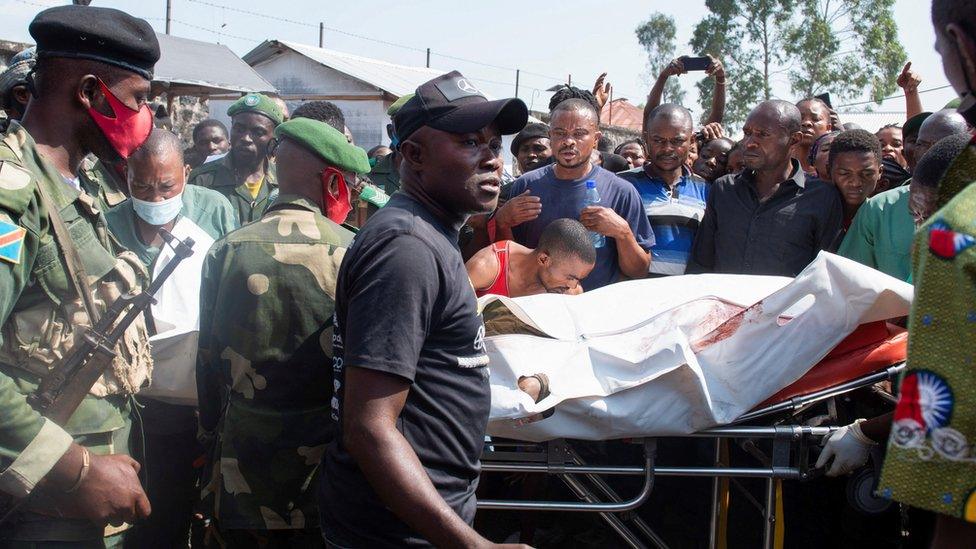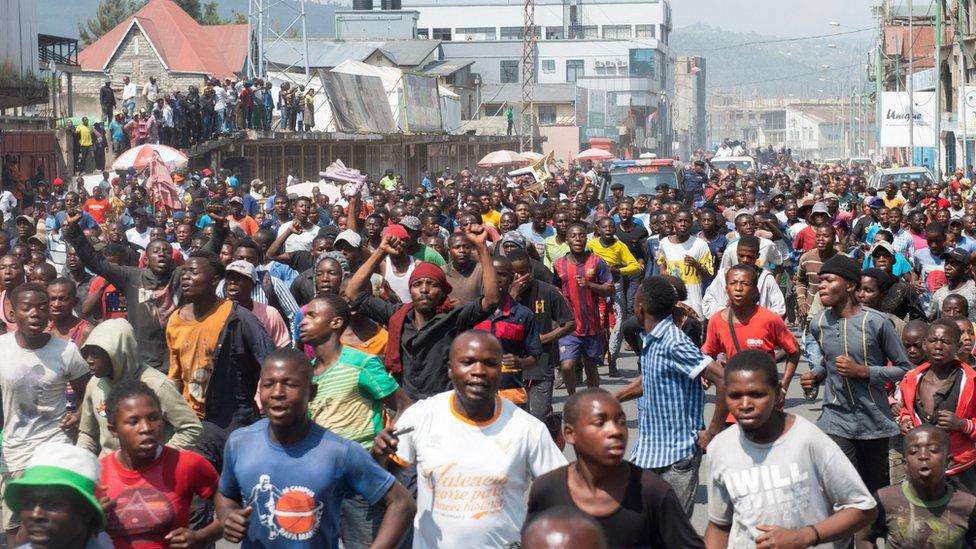DR Congo soldier shot dead by Rwanda police
- Published

The body of the soldier was brought back into DR Congo from across the border
A soldier from the Democratic Republic of Congo has been killed by police in neighbouring Rwanda after he crossed the border and began shooting, Rwandan officials have said.
The incident comes amid rising tensions between the two countries.
DR Congo accuses Rwanda of backing Congolese rebels and has halted all trade and cooperation agreements.
Rwanda has denied supporting the M23 rebel group, which this week seized control of the border town Bunagana.
On Friday morning, the Congolese soldier, armed with an AK-47, was shot dead 25 metres into Rwanda after he opened fire on security personnel and civilians injuring two police officers, a statement from Rwanda's army said.
A Rwandan policeman shot back in self-defence killing the soldier, it added.
DR Congo officials have confirmed an "incident" but have not given any details, the AP news agency reports.
When the soldier was brought back into the nearby Congolese city of Goma, people surrounded the ambulance chanting "hero, hero", the Reuters news agency says.
Pictures from the scene show hundreds of people following the vehicle.

People in Goma were chanting and cheering when the ambulance came into the city
Earlier in the week in the city, an anti-Rwanda demonstration resulted in the looting of Rwandan-owned shops.
On Monday, after the capture of Bunagana, the Congolese government accused its neighbour of "invading".
Spokesperson Patrick Muyaya told the BBC's Focus on Africa radio programme that two Rwandan soldiers had been captured on the Congolese side, which "is evidence that Rwanda is supporting this movement".
"We don't want a war with [Rwanda], we don't want to fight with them, but we are taking measures in order to pressure the Rwandan government," Mr Muyaya said.
The authorities have also closed the border crossings with Rwanda between 15:00 and 06:00 local time.
Rwanda has said it is not supporting the M23 and has made counter-accusations against DR Congo.
The ethnic Tutsi-led M23 group emerged in 2012 as one of a plethora of militia fighting in the mineral-rich east of DR Congo.
It brought havoc to the region, at one point briefly capturing Goma. At the time, the government and UN experts said Rwanda supported the M23 - a charge Rwanda denied. The Rwandan government is also dominated by ethnic Tutsis.
The M23 insurgency ended in 2013 but in recent months the group has re-emerged.
Tens of thousands of people have fled the fighting, which threatens to destabilise the wider region.
Kenya President Uhuru Kenyatta, who is the current head of the seven-member East African Community, has called for the deployment of a regional force to DR Congo to "enforce peace".
Rwanda twice invaded its vast neighbour in the 1990s, sparking what was known as "Africa's First World War", in which millions of people lost their lives due to fighting and disease.
